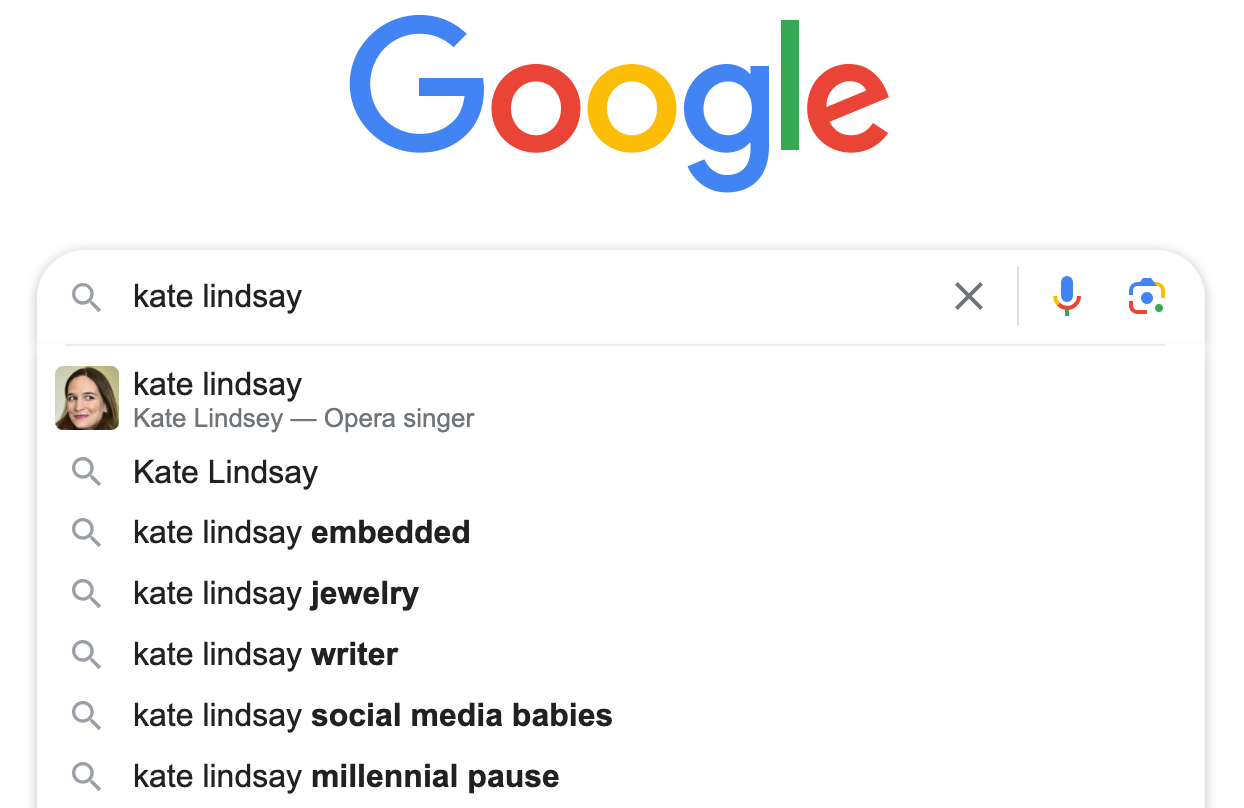Digital footprints are meaningless now
Gen Z has (accidentally) outsmarted a longtime threat.
Embedded is your essential guide to what’s good on the internet, written by Kate Lindsay and edited by Nick Catucci.
The only thing I’m scared of people finding is my fanfiction. —Kate
My digital footprint is pretty sparse. This is not a challenge to go looking for anything obscure and embarrassing I’ve forgotten about, but a quick Google search of my name turns up only bylines, and then another Kathryn Lindsay, a travel blogger who also goes by Kate.
As I’ve mentioned before (and as I wrote about in yesterday’s Sunday Scroll) I grew up on an internet that would regularly break down and disappear. Much of my online presence has been culled for me by websites that went defunct and code that fell out of date. But I also grew up in a time when the consequences of a digital footprint were routinely stressed to students in school assemblies and by career advisors. I would regularly do my own housekeeping on MySpace, and then Facebook, and then Instagram—something I honestly now regret a little, because those memories are gone, and I’m in an industry where a social media presence is an asset more than it is a risk.
For kids now, the pool of potential kompromat is even bigger, and it’s not going anywhere. There’s Instagram, Twitter, and TikTok, but also anything anyone decides to screenshot on even the supposedly ephemeral apps like Snapchat. Plus, per an Insider article, younger users are sometimes posting on these platforms up to 200 times a day. Today’s teens are no longer leaving a footprint, they’re kicking up a cloud of digital dust—an overwhelming flurry of information that, ultimately, will be too exhausting for anyone else to ever parse.
“I have a theory about this,” Hannah Stella told me in a recent chat we had for a different piece (coming soon). “The backlog and the cataloging and the tracking, I think people are getting fatigued a bit. And I think that there’s so much information out there about anybody who puts their business on the internet at all, that actually it’s becoming a meaningless sludge.”
While she’s not Gen Z, Stella is one of those modern public figures who puts their business on the internet, posting on TikTok, Instagram, and Substack to over 170,000 followers.
“I was very concerned about it for a while,” she said, referring to someone Googling her after they meet IRL. “And then I was like, ‘Oh, there’s so much that none of it matters.’”
In tandem with this growing sludge—and perhaps at times because of it—people are getting increasingly brazen online. Authenticity is such an asset when it comes to engaging users that I’ve noticed more and more people openly posting about things I’d, personally, take to my grave.
“You couldn’t have waterboarded this out of me,” is a genre of comment I’ll see on these kinds of overly confessional videos, where the creator divulges an unfortunate mix-up or shares unflattering footage. I’m using purposefully vague language because the ones that come to mind are about bathroom mishaps or the smell of genitals, and I’m not going to search for them, let alone share them with you.
I won’t go as far as to say we’ve eliminated the danger of the digital footprint. I do think that if an employer came across a video that you posted of yourself on the toilet, they would question your judgment. But for less overt online offenses, there’s going to need to be an understanding in the next five to 10 years that that’s how many people grew up, especially during the pandemic. We post everything now, and it’s not always going to be flattering or office-friendly, the same way we don’t live our day to day lives in ways that are always flattering or office-friendly. An employer can fire one person for being weird online, but they can’t fire everyone.





I love your essays (subscribed!) but want to point out something I have seen as a child/adult psychiatrist in private practice: OCD around what people *might have* done and whether it is online.
These people worry that they made a comment, offended someone, were racist/sexist/you name it. Therefore they constrain themselves in every IRL interaction to avoid possibly triggering this unpleasant thought process.
Some have actual ocd and some just traits but those people definitely don’t feel past censoring yourself at this point. Almost the opposite.